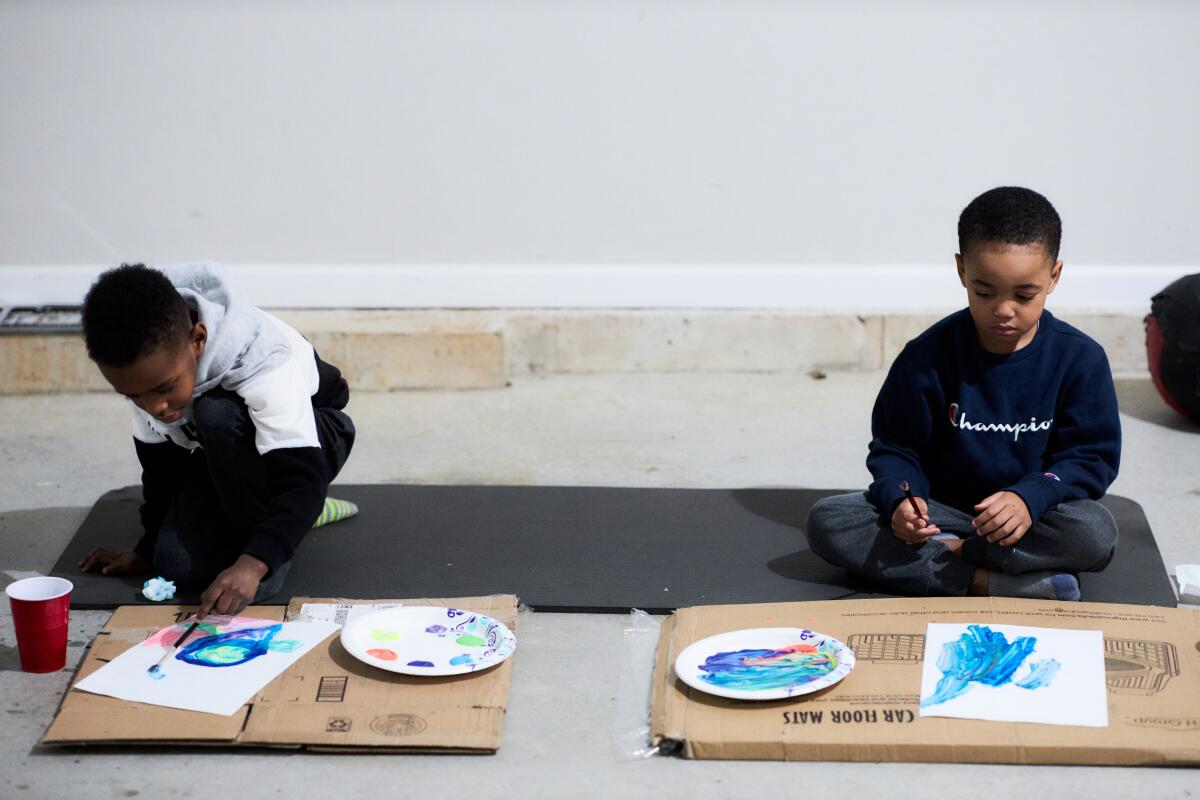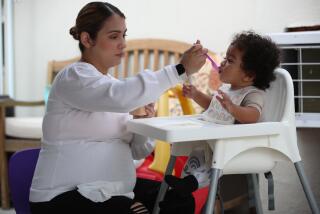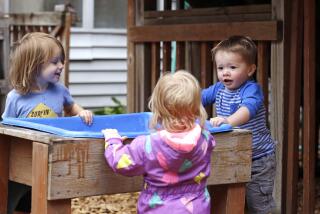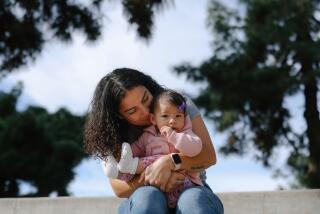Opinion: We can’t reopen the economy without child care

- Share via
Another day, another state relaxes its stay-at-home orders.
Just in the last two days, more governors, including Gov. Gavin Newsom, have given their blessing to allow previously shuttered retail stores, including bookshops, clothing stores and sporting goods dealers, to reopen for limited operations. Construction and manufacturing are getting the go-ahead in some states, while others are allowing some dine-in restaurants.
Of course businesses have to reopen eventually. It makes sense to take cautious, incremental steps toward returning to some kind of normal.
But while there’s been lots of debate over which retailers can open and how many tables restaurants can safely manage, there’s been far too little discussion of another serious challenge posed by the staggered reopening: An increasing number of employees are expected to show up for work, starting now. Their jobs can’t be done remotely. But the schools are still closed, child care is limited, and it’s risky to rely on grandparents and extended family when babysitting could expose them to infected but asymptomatic kids.
What’s a working parent supposed to do?
In Denmark, the government decided to open schools for children 11 and younger first, even before businesses reopened. It was an acknowledgment that parents need childcare before they can return to work and to full productivity.
But in the U.S., the political push to reopen the economy has overlooked the working parents’ dilemma. That shouldn’t be a total surprise — the U.S. consistently ranks as one of the worst countries for family-friendly policies, like paid maternity or parental leave, paid sick leave, flexible working arrangements and affordable childcare. Still, the lack of consideration is galling. Some of the governors who pushed to reopen their restaurants, hair salons, gyms and movie theaters early have not been equally adamant about making sure returning workers have quality childcare for their kids.
In Georgia, while service and entertainment businesses opened in April, schools remained closed for the academic year. Most preschools and daycare centers stayed closed too just because of the risk to staff and the complexities of complying with new safety regulations that limit classrooms to no more than 10 people. It’s also still hard to find reliable supplies of gloves, disinfectant wipes and hand sanitizer. Such precautions and safety protocols are vital, but they’re also going to make it more difficult for daycare centers across the country to reopen.
The lack of child care is going to be a problem for months.
The vast majority of schools in the U.S. are closed except for distance learning. Most districts won’t reopen campuses until the new school year begins in August or September. For a lot of working parents, the schools are their childcare providers. Moms and dads can drop their kids before the first bell, and many campuses have after-school programs that run until 6 p.m. or later. That support system is gone.
There’s no clear answer yet on whether summer camps or community centers will be able to open. Or whether it will be safe to do so. Some camps are transitioning to online-only experiences, but that doesn’t solve the childcare problem for parents who can’t work from home (or for those who attempt to work from home while managing their brood).
It’s hard to see how retail clerks, assembly-line workers and other working parents recalled to their jobs in the next few weeks will manage. The good news is that there are some safety nets for parents who cannot yet return to work. In fact, the pandemic pushed federal leaders to finally enact some of the family-friendly policies that have long been the norm in other countries — even if the measures are temporary and riddled with loopholes.
Congress passed an emergency paid leave program, but it has some serious limitations. The Families First Coronavirus Response Act provides 10 weeks of paid leave for parents who can’t go to work because their child’s daycare or school closed as a result of the coronavirus. Sounds great, except that Congress exempted companies with more than 500 employees and allowed companies with 50 or fewer employees to refuse to provide leave if it would jeopardize business.
As a result of those and other carve-outs, more than 75% of workers are at companies that qualify for exemptions from the paid leave requirement, the New York Times reported.
The CARES Act passed by Congress specifically allows parents to apply for unemployment benefits if they can’t work because their kids’ schools or daycare facilities were closed as a result of COVID-19. The act extends unemployment insurance for up to 39 weeks, including an extra $600 per week though July 31. Hopefully, the schools will open before the extended benefits run out. Unemployment benefits will also be available during the summer school break to parents who rely on camps or daycare providers that are remaining closed because of the pandemic.
If the political leaders of the country are serious about rebooting businesses, they have to recognize that child care is an essential piece of the country’s economic infrastructure. They need to figure out how to safely reopen the schools, daycare centers and other businesses that care for the children so parents can get back to work.
More to Read
A cure for the common opinion
Get thought-provoking perspectives with our weekly newsletter.
You may occasionally receive promotional content from the Los Angeles Times.











